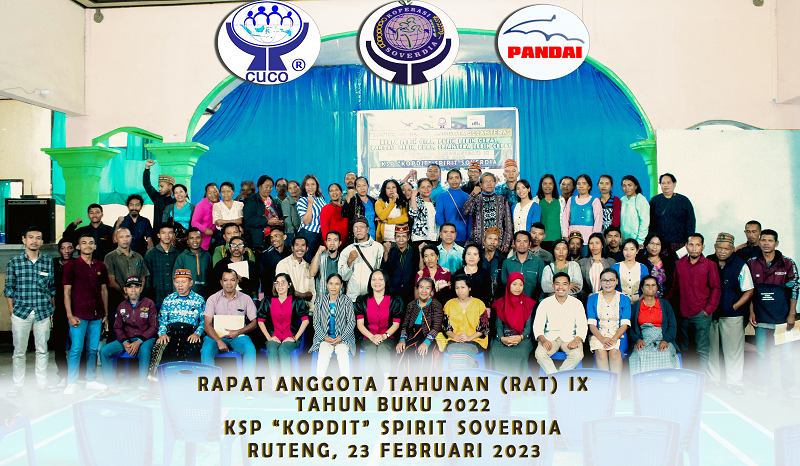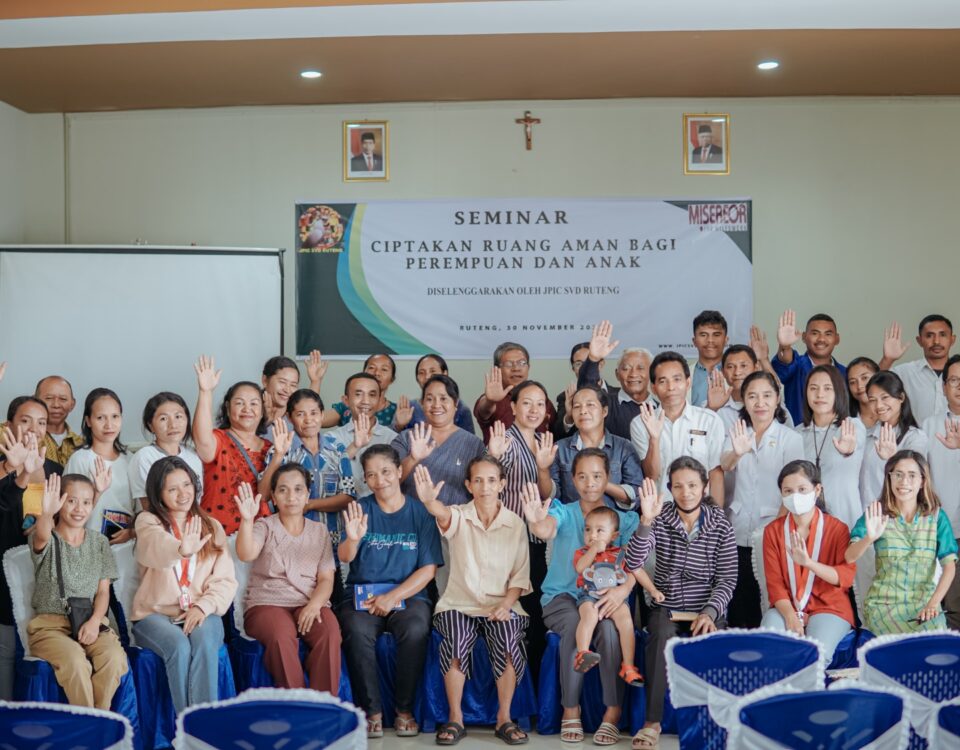- Melayani Lintas Batas
- +6238521421
- saveflores@yahoo.com
BRIEF REPORT JPIC SVD RUTENG
INSTITUTIONAL :
• COORDINATOR
• STAFF MEMBERS
• 2 OF SVD MEMBERS (PRIEST & BROTHER)
• 17 STAFF MEMBERS (LAY PERSONS)
PROGRAM ACTIVITIES
• February 2019-April 2022: Advocacy and Empowering People against Human Rights Violence leading to Land Grabbing and Migration.
• May 2022- April 2025: Advocacy and Empowering People against Human Rights Violence leading to Gender Equality and Inclusion.
• Emergency Response: Covid-19 (2020), SEROJA Cyclon (2021)
• Laudato Si Action Plaolvingtform-1 (2021 -October-2022): involving accompany groups members-women mother, shop owners and shop-keepers, students, parishioners of SVD Parishes (Sumba and Manggarai)
LOCAL INITIATIVE
• Using Clean and Renewable energy : Barsha Pump & biodigester.
• Promoting Developing Organic farming by using organic fertilizer (liquid fertilizer —- Brand: POC 3G and solid fertilizer)
• Used Plastic Managing: environment awareness: accompany groups members-women mother, shop owners and shop-keepers, students, parishioners of SVD Parishes (Sumba and Manggarai)
• Cooperative and entrepreneurships Developing more than 30 accompany groups.
PARTNERS
Local :
-JPIC of Ruteng Diocese, JPIC of SSpS, Parish Priest, Local Governments (village to Province), Community groups,volunteers/Community organizer, local NGO (Yakines, Ayo Indonesia, SL Consultant, AMAN), Local Press, youth group (PMKRI and GMNI)
National: Vivat International Indonesia, JATAM, Walhi, National Goverenments Body (DPR RI, POLRI, KOMNAS HAM…), JPIC OFM, Satu Nama, Local Press
Internantional: Vivat International, JPIC SVD, Misereor/KZE, Schmitz Stiftung, Steyler Mission, Swistzerland Mission
ACHIEVEMENTS
• Mining activities already stop, government has published the Moratorium of mining activities and cancelling the mining policy and other not pro people policies.
• More than 2000 people has joined with SOVERDIA Cooperative for developing their life.
• A number of accompany groups has developed the organic farming, fishery, livestock, post harvest management of coffee, Virgin Coconut Oil, others economic efforts.
• The women groups have developed the weaving
• A number of districts and villages regulation have made in collaboration between governments and JPIC for protecting people rights.
• Public in Manggarai has concerned and helpful the struggle of people whose rights have been violated.
• Public in Manggarai has concerned with environmental issues and involved in the environemental movement initiiated by JPIC and the church in general
• Cases handling: 12 cases (Non litigation and litigation)
CHALLENGES
•New Development policy for Labuan Bajo and Flores in general: Super Premium of tourism and super priority of development.
•the large area of people land, included the Paddy (and land) and the house evicted without compensation in the name of tourism development.
•And also, large area of forest cut down for tourism proposes.
•Flores designated as geothermal island with the consequence, many area in Flores be dismantled for geothermal exploitation and it will be take the living space of local people such as in Nunang that rejected by local people and raised conflict in the commnity.
BEST PRACTICE
•Water Crisis and Hydro-Technology Innov
•Thank you for this excellent opportunity to make an intervention at the Stakeholder Consultation for the UN 2023 Water Conference. I would like to underscore the importance of the innovative effort of using hydro-technology in coping with water crises that redoubles the harvests and products of local farmers.
•Water is not only essential for life, health, and sanitation but is also valuable for agriculture. Climate change has devastating impacts on water and land, resulting in droughts, water crises, and reduced land productivity.
•In coping with the water crises, local farmers in Eastern Indonesia are challenged to be more creative and innovative. Assisted by a local NGO – JPIC SVD Ruteng, they use the limited water resources for watering dry land by taking advantage of the hydro-technology of Barsha Pump, which is cheap, affordable, and environmental- friendly.
•Using a small-scale hydro-Barsha pump, the local farmers can pump water from rivers in the lowlands for irrigating horticulture farms in the highlands. With that, farmers can plant crops during dry seasons and redouble harvests two or three times per year compared to previous years, which happened once only.
•By using the innovative technology of Barsha Pumps, the local farmers are able to become more resilient in facing water shortages due to climate change and increase the production of horticulture crops that ensure food security.
•In strengthening the resiliency of local farmers in coping with water scarcity and scaling up their efforts for enhancing farming productivity, we recommend the local and national governments take affirmative policies and actions to ensure financial support, offer capacity-building and provide cheap, affordable, and environmentally- friendly technology.
Ruteng,10-11-2022



